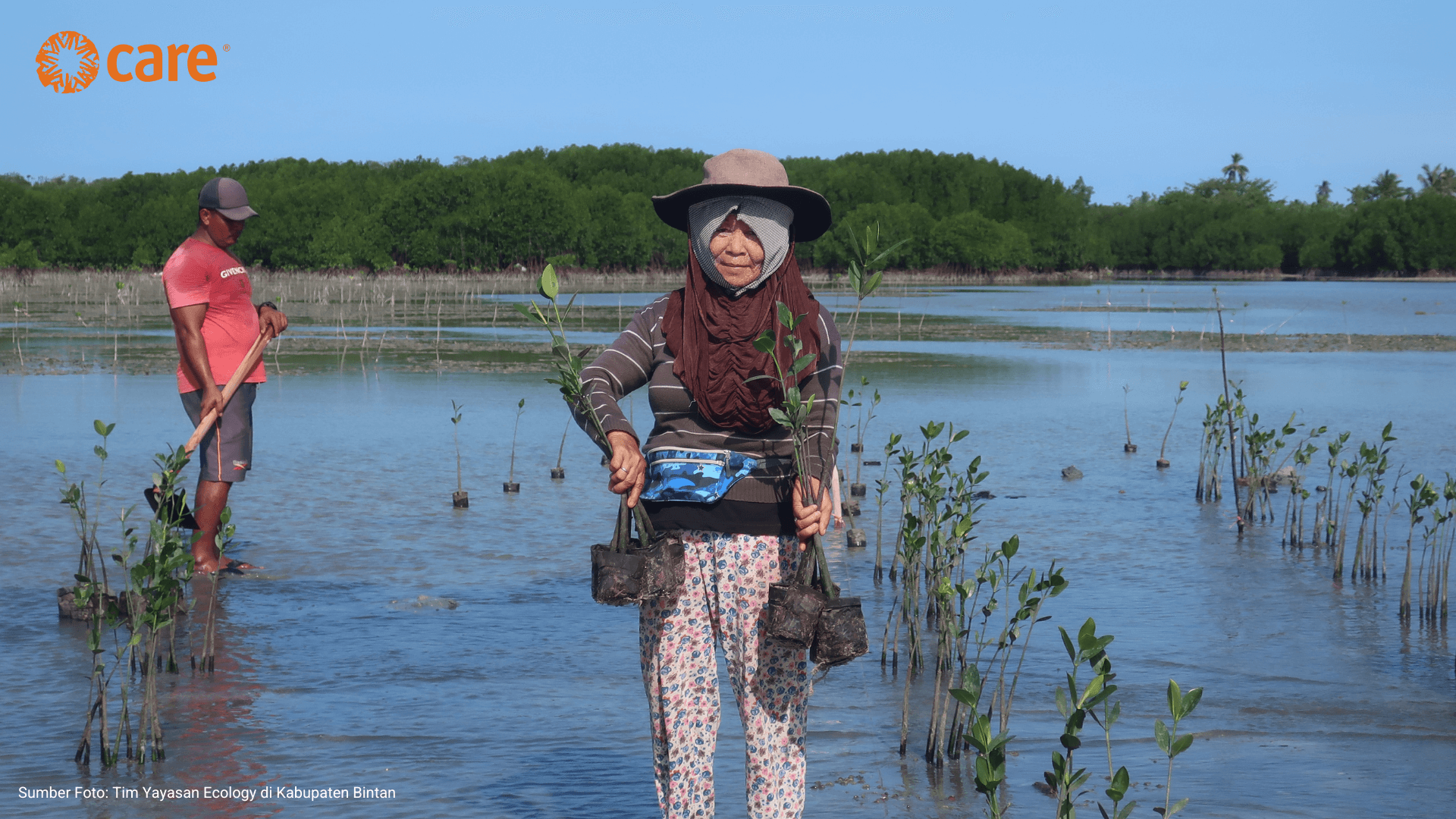Climate change has now become a real threat affecting life worldwide. The average global temperature has increased by about 1.1°C since the pre-industrial era, with the last five years recording the highest global temperatures, including 2016 and 2020, as the hottest years ever recorded by the National Oceanic and Atmospheric Administration (NOAA). The impacts of this change are widespread, ranging from the melting ice at the poles, which causes sea levels to rise by 3.3 mm per year, according to the IPCC report, to more frequent and intense extreme weather events such as heatwaves, floods, and droughts, which disrupt food security, increase the risks of diseases like malaria and dengue, and damage ecosystems. The destruction of tropical forests, which contribute more than 10% of global carbon emissions according to Global Forest Watch and the World Resources Institute, exacerbates the effects of climate change we are experiencing.
In Indonesia, climate change has a significant impact on women, especially in coastal and rural areas that depend on agriculture and fishing. Rising temperatures and increasingly frequent natural disasters threaten food and water security, making women more vulnerable. Additionally, women are often exposed to gender-based violence after disasters and are less involved in decision-making related to climate change, despite playing an essential role in adaptation. Gender inequality, as reported by UNDP and the World Bank, further worsens the impact of climate change on women.
Sustainable Mangrove Efforts Enhance the Economy
In the face of climate change challenges, women in Berakit Village, Bintan Regency, have demonstrated an extraordinary role in environmental preservation efforts. A group of women mangrove activists in this village is actively involved in the restoration and conservation of mangrove forests as part of a protected area. They not only engage in seedling production but also regularly monitor the mangrove saplings that have been planted. To date, more than 50,000 mangrove saplings have been successfully developed. Once at least four leaves have grown, the women plant these saplings along the village’s coastal area, following the planting of 1,000 mangrove plants done earlier. “Together with the women in Berakit Village, we have developed mangrove seedlings, some of which have already been planted. This activity is fully supported by the CARE Peduli Foundation, in collaboration with the Ecology Foundation,” said Meli, a member of the women’s mangrove conservation group in Berakit.
Meli added that she and the group members are also working to develop mangrove-based businesses as an additional family income source. Through the Melati Women’s Economic Business Group (KUEP) and the Tenggiri KUEP, they plan to manage small businesses utilizing the abundant mangrove ecosystem. One such initiative is the production of fabric with motifs resembling batik, using natural dyes derived from mangrove plants. Meli further noted that to improve the quality of the batik produced, she and other KUEP members received training in creating batik fabric with natural dyeing techniques or eco-printing. Trained by instructors from Betuah Ethnic, she, along with 19 other KUEP members in Berakit Village, was taught simple dyeing techniques using roots, stems, and leaves from mangrove plants as the source of color. The batik training using natural dyes from mangroves is supported by the CARE Peduli Foundation (YCP) in collaboration with the Ecology Foundation.
Samsimar, one of the KUEP members, expressed pride in the training she attended. “I am very happy to attend this training because I can learn to make items that I can sell to increase the family income. Through batik training, I hope to produce fabric with beautiful motifs and colors from mangrove plants,” she said. Samsimar hopes that similar training continues so that they can keep growing and improve their family economy.
Generating Additional Income from Household Organic Waste Management
In addition, remarkable women also play a role in environmental management in Sido Mulyo Village, Musi Banyuasin Regency. A women’s group within the Independent Women’s Economic Business Group (KUEP) is actively managing household organic waste by using Black Soldier Fly (BSF) maggots. Nursinaini, one of the group members, explained that they also educate the local community to sort organic and inorganic waste. This initiative not only helps the environment but also opens up economic opportunities for local women. “We manage household organic waste from six families. The waste we manage consists of food scraps, fruits, and vegetables. We also teach the local community to sort organic and inorganic waste,” explained Nursinaini.
In Depok City, a women’s group that participated in YCP training is also involved in managing household organic waste using BSF maggots. From December 2024 to January 2025, the participants successfully managed about 29,772 kg of organic waste. As a result, they earned IDR 6,025,000 from selling the maggots. This initiative shows that women not only play a role in environmental preservation but also in creating sustainable economic opportunities. Arniah Purwanti, one of the participants from Depok City, said she was interested in participating in the maggot management training because it could bring economic benefits. “I saw on social media that maggots can be sold. But it turns out that marketing them is really hard. Now, I know where to sell the maggots, so it’s easier,” said Arniah.
Women are key drivers in environmental protection because they are often directly impacted by climate change and play an essential role in preserving nature. Empowering women, including economic empowerment, is crucial to strengthening their ability to face the challenges of climate change and create sustainable solutions. By empowering women, we also strengthen the environmental and economic resilience of communities as a whole.
Author: Kukuh A. Tohari
Editor: Swiny Adestika





